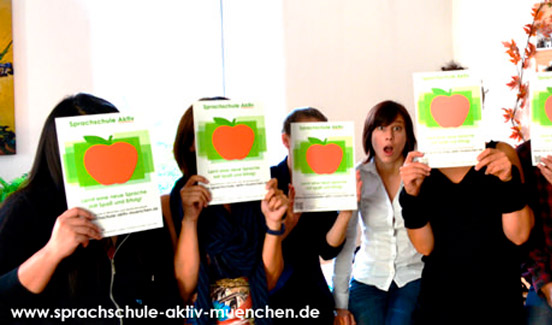Please/thank you – “Bitte & Danke” – Definition of their use in German
Please and thank you – “Bitte und Danke” – The Explanation and Definition of their use in German. As you should already know, manners are one of the most essential factors in learning a new culture and social norms. As a foreigner and a newcomer to a language or country, you are guaranteed to come across confusing circumstances. It is when you have the ‘deer in the headlights’ look and have no idea what to do, someone comes to your linguistic rescue. After such a kindness, it is necessary to express gratitude. In German, that can be a tad tricky. You are presented with a number of options to show appreciation, but there are two main phrases: Please and thank you – “Bitte und Danke” – The Explanation and Definition of their use in German.
Danke (für + Accusative)
| Accusative Definite Articles
(The) |
|||
| Masculine | Feminine | Neutral | Plural |
| Den | Die | Das | Die |
| Accusative Indefinite Articles
(A/An) |
|||
| Masculine | Feminine | Neutral | Plural |
| einen | eine | ein | xxx |
Note: The ‘object’ or the second subject in the sentence must always be in dative with the verb of “Danken”
Dankeschön! -> Thanks!
Danke sehr! -> Thanks very much!
Vielen Dank! -> Thanks a lot!
- These are some of the common phrases to say thank you. When going to stores and talking with other people, these phrases are extremely useful!
[hr top=”no” class=””/]
Herzlichen Dank! ->Thank you very much!
Besten Dank! ->With best thanks!
Danke, gleichfalls! -> Thanks same to you
- Both of these expressions are considered friendlier in comparison to the three above.
Ich danke dir/Ihnen. -> Thank you. *DATIVE
- This is more of a formal form to day thank you, especially when using Ihnen in the sentence.
Nochmals danke! -> Thanks again!
Danke nochmal! -> Thanks again!
- This is to repeat and emphasize your appreciation
Danke im Voraus! -> Thanks in advance!
- This is to share your appreciation for something that will be done in the future.
What is the Difference Between Thank You and Thank You?
In German, there are technically two verbs that both mean “thank you”. As a native English speaker, this is an odd concept that is difficult to translate. There is ‘danken’ and ‘sich bedanken’.
Danken:
| Dative Definite Articles
(The) |
|
| Masculine | Dem |
| Feminine | Der |
| Neutral | Dem |
| Plural | Den |
| Dative Indefinite Articles
(A/An) |
|
| Masculine | Ein |
| Feminine | Eine |
| Neutral | Einem |
| Plural | xxx |
This is used more as the common use of the verb ‘to thank’ directed towards another person
- Remember: it requires the use of the dative case
Example:
- Er sagt mir Danke -> He said thanks to me
- Why Danke? This is used the verb to thank and it is directed towards someone else.
- Danke für die Hilfe! -> Thanks for the help!
- Why danke? This is also used in the normal verb tense and directed towards another person.
Sich Bedanken:
| Dative Definite Articles
(The) |
|
| Masculine | Dem |
| Feminine | Der |
| Neutral | Dem |
| Plural | Den |
| Dative Indefinite Articles
(A/An) |
|
| Masculine | Ein |
| Feminine | Eine |
| Neutral | Einem |
| Plural | xxx |
| Reflexive Pronouns | |
| ich | mich |
| du | dich |
| er/ sie | sich |
| wir | uns |
| ihr | euch |
| Sie/sie (form./pl.) | sich |
- This is used when there is a reflection of gratitude from the subject of the sentence.
- Notice that with the verb ‘bedanken’ is the reflexive ‘sich’ attached.
- The standard preposition for ‘sich bedanken’ is ‘bei’, which always require the dative form
Example:
- Er bedankt sich bei mir für die Hilfe. -> He expressed his gratitude to me for the help
Bitte
There are a number of ways to say “you’re welcome” ranging from colloquial to formal. Take a look at some examples!
‘Bitteschön!’ -> You’re welcome!
‘Bitte sehr!’ -> You’re very welcome!
‘Sehr gerne!’ -> With pleasure!
‘Gerne geschehen!’ -> With pleasure!
‘Bitte, bitte!’ -> Welcome!
‘Kein Ding!’ -> No problem!
‘(Ja/Na) Klar!’ -> Of course!
‘Gerne!’ – With pleasure!
‘Immer wieder gerne!’ ->Always a pleasure
‘Es war ist/mir ein Vergnügen!’ -> It is/was a pleasure!
‘Nichts zu danken!’ -> Don’t thank me!
‘Nicht der Rede wert!’ -> Don’t mention it!
Bitten vs. Bitte sagen
Having the two options of ‘bitten’ and ‘bitte/bitte sagen’ can be a hard concept to grasp at first. Although the two may seem like the same, there is a slight difference between them.
Bitten is considered the more formal and polite way of addressing someone. The preposition that goes along with it is ‘um’ which require the accusative case. When used in a secondary dependent clause, it is often used with the preposition zu+ infinitve.
Ich bitte dich, mir zu helfen. ->I am asking you to help me.
Kannst du mir bitte helfen? -> Can you please help me?
Ich bitte dich um Hilfe. -> I am asking for help
Bitten is also conjugated irregularly
Presence: ich bitte, du bittest, er/sie bittet etc.
Preterite: Ich bat, du batst, er bat etc.
Perfect: ich habe ihn (um+ accusative) gebeten
The noun for bitten is ‘die bitte’
The equivalent of ‘danke/danke sagen’ and ‘sich bedanken’ is simply ‘bitte/bitte sagen’
Das Kind sagte Bitte/bitte zu der Frau.
You are now ready to go the grocery store, in the street when asking for directions, or and start a phone call polite conversation with the average German speaker.
